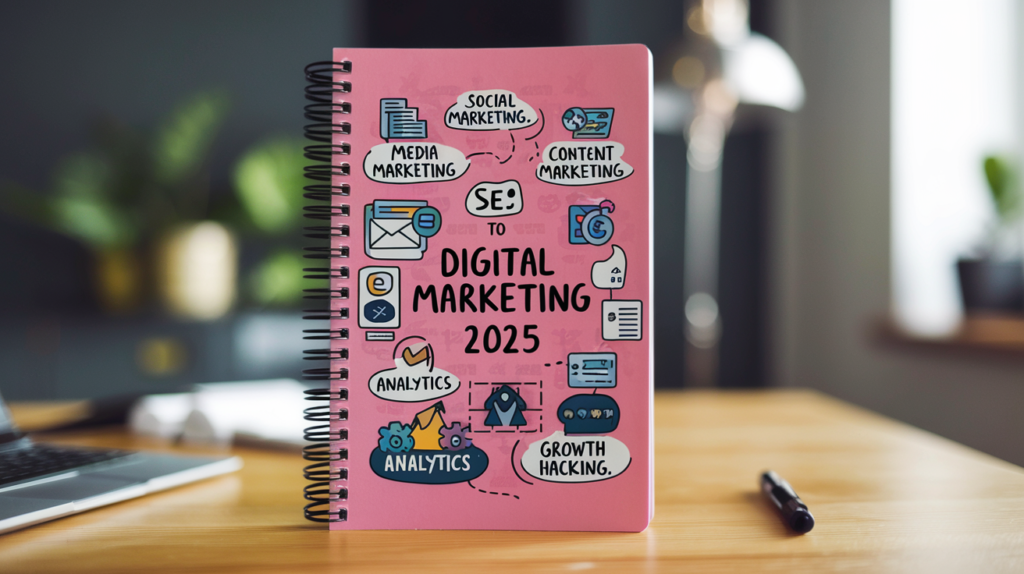The Rise of Controversy in Social Media: A Digital Marketer’s Perspective
In the current digital environment, social media has turned into a battlefield for disputes, both deliberate and inadvertent. So in this blog we have shown The Digital marketers Perspective on Social Media Controversy in 2025 .It has become commonplace for public figures, influencers, and brands to be at the center of contentious discussions. This blog examines how controversies impact digital marketing and whether they should be used to further a brand’s growth. However, from the standpoint of digital marketing, is controversy a good tactic or a risk that could damage a brand’s reputation? 1. The Virality of Controversy How Brands Leverage Controversy for Engagement Controversy has been shown to be one of the most effective ways to grab an audience’s attention, and the digital world thrives on engagement. Some companies are experts at strategically leveraging controversy to increase their visibility. Examples include: • Balenciaga: The company’s unorthodox advertising has frequently provoked controversy. Some criticized them for being tone-deaf, while others praised their creative marketing strategies. • Tesla and Elon Musk: Whether it’s Tesla’s technological innovations or Musk’s uncensored tweets, Musk regularly sparks conversations on Twitter, making Tesla a trending topic. • Public figures and influencers: Since controversy encourages interaction, many influencers purposefully produce divisive content to acquire traction. Why Does This Work? Social media algorithms favor high-engagement posts, meaning controversial content often gets amplified. When people debate, share, and comment on a post, it gains more visibility, leading to increased brand awareness. However, brands need to tread carefully, as poorly managed controversies can damage reputation beyond repair. Deeper Analysis: Controversy works well because it triggers an emotional response. Humans are naturally drawn to conflict, whether they agree or disagree with the issue at hand. Marketers often exploit this by designing campaigns that spark curiosity, excitement, or even outrage. For example, the infamous Gillette ad that tackled toxic masculinity divided audiences but kept the brand in the spotlight for weeks. Controversy also has the power to reshape brand perception. Some brands use it to reposition themselves in the market. A strong, bold stance on a relevant social issue can make a company appear progressive and forward-thinking. 2. The Risks vs. Rewards of Controversy in Digital Marketing Benefits: 1. Enhanced Engagement: Discussions, shares, and comments increase when controversy ignites dialogue. 2. Brand Awareness: Visibility is increased even by unfavorable press. 3. Loyal Fan Base: A devoted community can be formed by taking a strong stand on a subject. 4. SEO Boost: Brands can rank higher on Google thanks to the high search volume generated by controversial content. Risks include: Reputational harm: poorly handled controversy can result in boycotts and public outrage. Loss of Customers: You risk alienating certain segments of your audience by expressing polarizing views. Quick Profits vs. Long-Term Impact: Although controversy can garner attention in the short term, if it is managed poorly, it can also have long-term effects. Negative Press Coverage: A controversy can be magnified by the media, which makes damage control even more difficult. Digital Marketer’s Insight: Brands need to consider if getting involved in controversy is consistent with their values and long-term objectives. Plans for crisis management must exist if the strategy calls for controversy. Never use controversy carelessly; rather, incorporate it into a well-planned strategy that includes backup plans. For instance, companies with a track record of supporting social causes, such as Ben & Jerry’s, are commended when they do so. However, audiences may view a brand as opportunistic or inauthentic when it abruptly and unpredictably jumps on a contentious issue. 3. The Psychology Behind Online Outrage Why Do People Engage More with Controversial Content? Emotional Response: Content that evokes strong emotions such as shock, anger, or passion causes people to react strongly. Tribalism: People on social media frequently take sides and defend them, which feeds arguments. Sense of Justice: When people believe something to be unfair or immoral, they often feel obligated to voice their opinions. Algorithmic Amplification: Social media sites prioritize content that is highly engaging, frequently giving priority to content that is controversial. Digital marketers can create content that maximizes engagement while minimizing negative effects by having a solid understanding of this psychology. How Social Media Platforms Amplify Controversy Content that keeps users interested is given priority by algorithms. Because it elicits strong emotions and high levels of engagement, controversial content has a greater chance of being promoted to a larger audience. To get attention, digital marketers frequently employ attention-grabbing headlines, startling data, or divisive imagery. For instance, because they get the most interaction, politically charged or sensational subjects are frequently featured in Twitter’s trending section. Companies that recognize this trend can capitalize on controversy to keep their content current. 4. Case Studies: Controversies That Helped vs. Those That Hurt Global Cases: Nike & Colin Kaepernick: Nike’s controversial campaign featuring Kaepernick led to divided opinions, but it strengthened brand loyalty among its target audience, increasing sales. Pepsi & Kendall Jenner: Pepsi’s ad featuring Jenner attempting to solve social unrest with a soda was widely criticized, leading to its removal and a public apology. Recent Indian Cases: India’s Got Talent Controversy: The recent backlash against the show raised concerns about ethical content curation. The controversy gained significant traction, with viewers debating online whether reality TV exploits emotions for ratings. MahaKumbh Controversy: The recent debates surrounding MahaKumbh regarding its organization, environmental concerns, and political involvement sparked massive discussions across digital platforms. Lessons for Digital Marketers:To prevent backlash, brands must make sure their messaging reflects the values of their target audience. Brands are always looking for new and creative ways to draw in customers, boost engagement, and bolster their market presence in the fast-paced world of digital marketing. Using controversy to start discussions and create buzz is one tactic that has become popular. However, when using such strategies, ethical considerations must come first. Brands need to evaluate if utilizing controversy is consistent with their values, upholds their credibility, and builds audience trust over the long run. Misuse of controversy can backfire, resulting in financial consequences, a decline in consumer trust, and harm to one’s reputation. This article investigates the ethical use of controversy by brands in digital marketing. The Power of Controversy in Marketing For a long time, controversy has been a useful marketing tool. It draws attention right away, sparks conversations, and has the potential to go viral. People are drawn to divisive subjects by nature, and brands can gain more exposure by participating in these conversations. Brands trying to stand out find controversial marketing campaigns appealing because they frequently cut through the deluge of digital content. For instance, there was a lot of discussion about Nike’s 2018 advertising campaign that featured Colin Kaepernick, the former NFL quarterback who protested racial injustice by kneeling during the playing of the national anthem. Although some customers were turned off by the campaign, those who agreed with Kaepernick’s position became more devoted to the brand. Following the campaign, Nike’s
The Rise of Controversy in Social Media: A Digital Marketer’s Perspective Read More »






